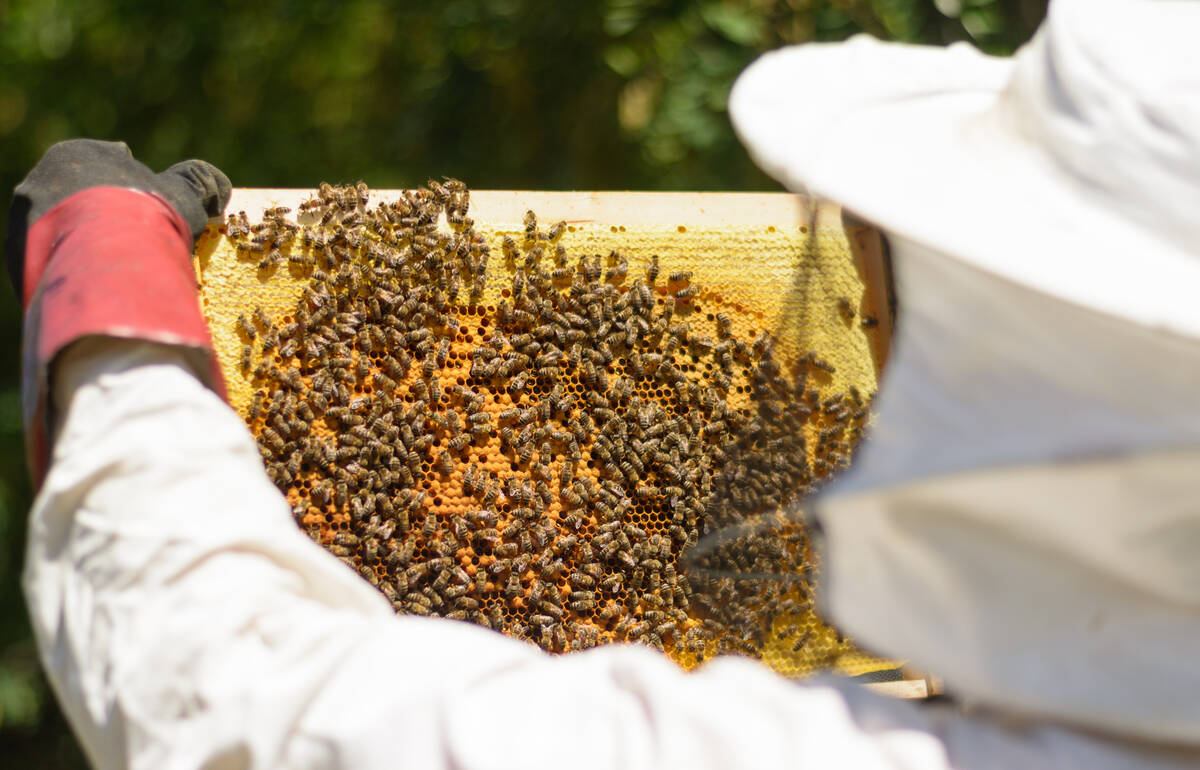[UPDATED: Feb. 24, 2021] The Manitoba Crop Alliance (MCA) is accused of undemocratic behaviour at its inaugural annual meeting.
But its chair says the fledgling checkoff commodity organization wants to test drive its bylaws and operating procedures before changing them.
The MCA was formed Aug. 1, 2020 following the merger of Manitoba Wheat and Barley Growers Association, Manitoba Corn Growers Association, National Sunflower Association of Canada, Winter Cereals Manitoba Inc. and Manitoba Flax Growers Association.
During its first annual meeting online Feb. 11, Dean Harder complained MCA’s board of directors blocked, without justification, three of his resolutions submitted for debate.
Read Also

Malta bee exporter blasts criticism from Canadian beekeepers
A honeybee exporting firm on the Mediterranean island of Malta says they’re collateral damage to a dust-up in the Canadian honey sector over imports of replacement bees.
One called for the deadline for submitting resolutions be two weeks before the annual meeting instead of Nov. 30, which was 2-1/2 months ahead of the meeting.
The second called for the MCA to accept resolutions from the annual meeting floor if approved by two-thirds of members present.
The third requested the MCA follow Robert’s Rules of Order when either tabling a resolution in lieu of more pressing matters, or postponing debate until a later date.
“The AGM is a meeting for its members and needs to be respected as that,” MCA chief executive officer Pam de Rocquigny read from a statement posted to the meeting by the Harders.
“My hope, on top of having the resolutions be taken seriously, is that the board will review what it has done, apologize, and ensure that resolutions that are for members to debate on the floor (can be)… ”
In response MCA chair Fred Greig said the MCA put a lot of effort into its resolutions and governance process.

“We felt we wanted to get it right the first time and we planned after two to three years’ worth of operations we would be reviewing all of our procedures to make them more efficient and we might require some bylaw changes then,” he said. “We were within our right not to bring those resolutions to the floor.”
The intent is to have resolutions submitted well in advance to the annual meeting so members know what’s coming and can make arrangements to attend if certain resolutions are important to them, Greig said.
“We felt any allowing motions from the floor, or within a shorter period of time, would exclude farmers from the process and we just felt that was not very democratic,” he said. “We didn’t set those times and guidelines without an awful lot of effort. It would be nice to see how they operate before we start changing them.”
Why it matters: Manitoba Crop Alliance represents around 8,500 farmers who contribute checkoffs from the sale of seven crops to fund mostly research, innovation and market development as well as to advocate on policies related to those crops.
In an interview after the meeting Greig said based on discussions with farmers leading up to and after the merger the board believes it’s following what most MCA members want.
“I guess we were fairly confident we knew what producers wanted,” he said.
“Had it been Dean Harder saying, ‘we want more research on these malt barley cultivars,’ now that makes sense.”
Moreover, the MCA’s lawyers told the board it had the authority to not allow Harder’s resolutions to be presented at its annual meeting, Greig said.
“It was a unanimous board decision to do what we did,” he said.
“We agonized over this.
“There was no ill will on our board. It wasn’t even four months old. We put a tremendous amount of thought and cost into developing the bylaws. So let’s at least run a year and see.”
Greig added that the board is committed to re-examining resolution procedures.
“Maybe next year will be the right time,” he said.
“By not bringing forward your resolutions to the annual general meeting, the board is not refusing to consider or take note of your concerns,” Greig wrote in a letter to Harder Feb. 1. “The board has decided that the issues you raised will be considered at an appropriate juncture by the resolutions committee in the future.”
Available forum
Greig also stressed there’s time allotted at the end of each annual meeting for open discussion by members. If there are timely issues of concern, they can be brought to the board’s attention then, he said.

“A resolution is clearly different than just a commentary,” Harder said in an interview after the meeting. “If a proposal doesn’t come through as a resolution the board wouldn’t take it as seriously.”
But Greig said that’s not necessarily so, and noted boards are not obliged to act on resolutions, even ones that are passed unanimously. They are considered as advice to the board and are not binding.
“I personally don’t understand why the board would let this issue hover as a concern for even one more year,” Harder wrote in an email Feb. 11. “It should have just let the members decide and then cleared the air. As someone who believes in these resolutions, and believes in the right of members to have a say through resolutions, I don’t believe I would be serving members by letting this go. I hope that members will use their rights to speak to their elected board reps to call for the board to do a 180 (degree turn) on these decisions. No member who sends in respectable resolutions should be denied.”
A person with direct knowledge of the board’s decision agreed it wants to see how its procedures work before changing them.
The person also said because COVID-19 was forcing the first annual meeting online, the board wanted to keep things simple and avoid getting bogged down in procedural wrangling.
The easiest thing to do would have been to allow Harder’s resolutions to be debated, but it wouldn’t have been the right thing, Greig said.
Based on the lack of discussion, had Harder’s resolutions come to the floor they wouldn’t have passed anyway, according to Greig.
“So I guess we’re trying to be a bit proactive… ”he said, adding members want meetings to run efficiently and have complained about Manitoba Wheat and Barley Growers Association meetings getting bogged down over certain resolutions and meeting procedures.
“To me this is about the members’ rights and I hope members can speak up and now members need to know about it and that this can happen,” Harder said. “It’s not just these resolutions it’s any resolution, especially any that deal with bylaws or procedures.”
*Update: A photo of Wilfred ‘Butch’ Harder and his attribution to a comment from the MCA meeting was removed.
















